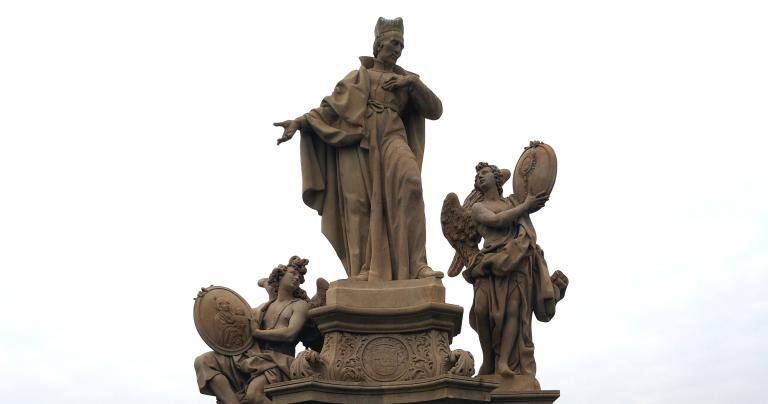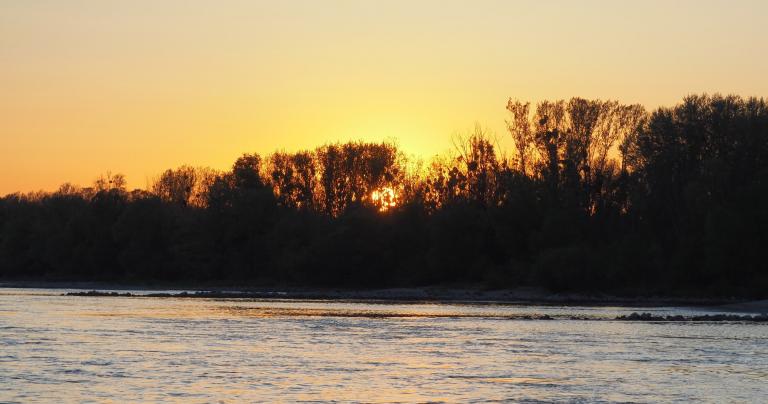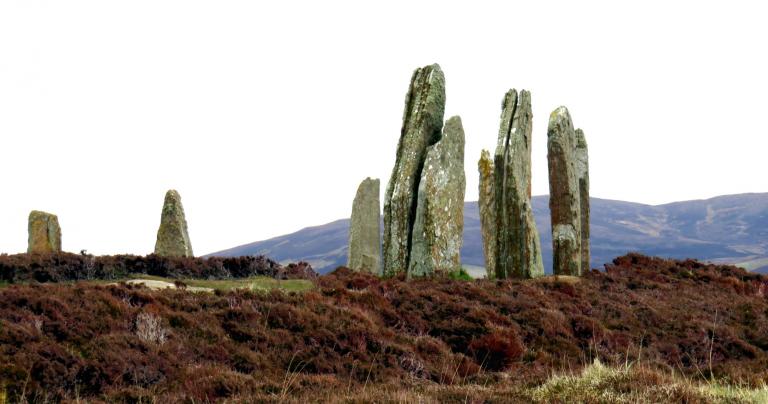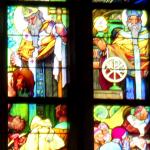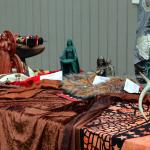How did religion begin?
We know how some religions began. Buddhism began with the enlightenment of the Buddha. Christianity began with the teachings of Jesus, or perhaps with the preaching of Paul. Wicca began with the work of Gerald Gardner. Even if the origin stories these religions tell aren’t literally true, they give us a pretty good idea of how and when and why a particular religion arose.
But what about religion in general? How did the Pagan religions we’re reviving began in ancient times, or the religion that was practiced at Göbekli Tepe over 10,000 years ago? How did the earliest tribal religions begin?
This is more than idle curiosity. If we can understand how the religious impulse began, we can do a better job of separating our own authentic religious experiences from the dogmatic interpretations some of us were taught as a child.
Back in April, BBC.com published this long piece titled How and why did religion evolve? by Brandon Ambrosino. It’s one of the better “evolution of religion” essays I’ve seen over the years. It looks at other primates as a proxy for early human and pre-human species and focuses on the benefits of religion in bonding societies together, which increases their chances of long-term survival.
Ambrosino emphasizes the importance of ritual – “activities done for their own sake, which may not serve an immediate survival capacity, but which have a very large potentiality of developing more capacities” – and empathy, which is “central to what we call morality” and “is not primarily in the head. It’s in the body.”
This was supposed to be the first of a two-part feature, but if the second part has been published yet I haven’t found it. I’m curious about what will be in Part Two, because as good as Part One is, it’s missing the same thing every other “origin of religion” and “evolution of religion” essay is missing: first-hand religious experience. It defines religion as “the shared reverence for the supernatural, sacred, or spiritual as well as the symbols, rituals, and worship that are associated with it” and then proceeds to ignore anything remotely supernatural, sacred, or spiritual.
Essentially, it attempts to explain religion while ignoring religion.
If you assume there is nothing supernatural, sacred, or spiritual you can never hope to understand the beliefs and practices of someone who actually experiences the supernatural, sacred, and spiritual. And so if we want to understand the origins of religion, we have to go deeper.
Origin stories provide direction
We are not fundamentalists – stories need not be literally true to provide us with meaning, or with information. And there is useful information in the origin stories of contemporary religions.
Islam began when an angel spoke to Muhammad. Christianity took a fateful turn when Saul of Tarsus encountered Jesus of Nazareth. The Buddha sat under the bodhi tree until he received enlightenment. Something happened – a person had a religious experience so profound it changed their lives, and through them, the lives of countless others.
The more modern and better documented (but still mysterious) origins of Wicca provide an alternative model – not a sudden dramatic “conversion” but a gradual shift. In Gardner’s case that included experiences of Freemasonry and Rosicrucianism, living in Malaysia, and initiation into the New Forest Coven.
While religion is a communal thing, these origin stories point toward a beginning with a specific individual. Or perhaps, with the similar experiences of many individuals.
The experience of spiritual beings
I appreciate the use of apes, chimps, and bonobos as proxies for now-extinct human species. But we have an even better proxy for the earliest homo sapiens sapiens – ourselves. Our species is essentially unchanged in the past 200,000 years or so. Brain size, capacity for language, ability for abstract thinking – we’re them and they’re us.
Almost all of us above a certain age have dreamed of an ancestor – perhaps someone we knew in this life, or perhaps someone we’ve only heard stories about. Some of us have had waking encounters of them.
I’ve had tangible experiences of beings I’m convinced are not of this world. I’ve had less tangible but just as real experiences of beings I’m convinced are Gods. I talk regularly with other people who have similar experiences. We can debate what these beings really are and what our encounters mean, but the experiences themselves are undeniably real.
The lore of our ancestors and the reports of the world’s remaining tribal societies tell similar stories. People have experiences of numinous beings and they always have. They interpret them in different ways, but some of them are so strong and so meaningful they give rise to beliefs and practices that become religion.
The contemplation of the Big Questions of Life
Sometimes religion comes to us, as with the experiences described above. Other times we seek it out.
It’s been said that to be human is to have the awareness that we are alive, and that someday we will die. Are other species aware of their own mortality? We have no way of knowing. But we certainly are.
What happens after we die? We have hints and intimations, but ultimately we don’t know. So we contemplate, and speculate, and to the extent we’re able, we explore. Perhaps we live on in an Otherworld. Perhaps we’re reincarnated in this world. Perhaps there is only this one life.
It’s not just death. It’s the miracle of birth and new life. It’s the cycles of the sun and the moon and the changing of the seasons. It’s Nature both beautiful and terrible: blue skies and hail storms, thirst-quenching streams and drowning floods, the mewing kitten and the ravenous lion.
What do they mean? Where do we fit in with this grand tableau of life?
Regardless of the conclusions we reach or how firmly we do or don’t embrace them, the very act of contemplation moves us closer to the supernatural, the sacred, and the spiritual.
And we’ve always done it.
The road from experience to religion
It’s a long way from encountering a God and contemplating the Otherworld to a fully formed religion with shrines, altars, and devotions. It’s a further step from there to temples, priests, and all the structures of institutional religion. Many times those steps are helpful. Sometimes they aren’t.
You don’t have to be an atheist to see that once any religion attains institutional power it’s ripe for abuse, whether that’s sexually abusing children, preaching fear and hate, or cozying up to corrupt politicians. Yet these abuses need not happen, and when they do we need not abandon something that has brought meaning and comfort to people for as long as we’ve been human, and likely longer.
Exploring the origins of religion helps us peel back the cover from our particular form of religion and lets us see what’s at its core. What experiences, what lines of thinking, and perhaps most importantly, what Gods and spirits are at the center of our religions? Are they solid? Good – now we fix what’s wrong and move forward.
And if they’re not, then find a new core. Perhaps that’s another existing tradition.
Or perhaps, we build our religion around our own experiences, and the experiences of those closest to us.
In any case, it’s easier to figure out where you’re going if you know where you’ve been.


